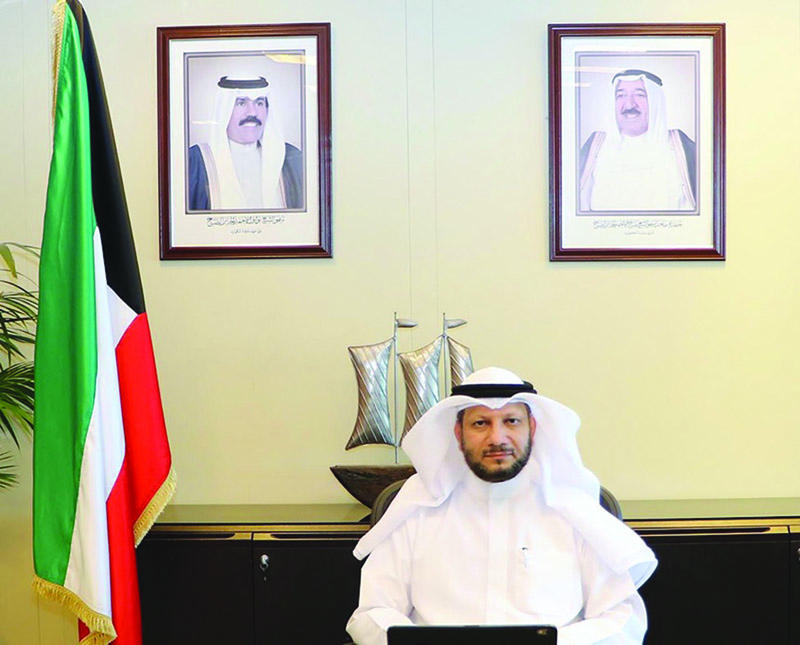
KUWAIT: Kuwait's Finance Minister Barrak Al-Sheetan said on Monday the "government has not taken any decisions that impact the pockets of nationals, their salaries or their rights." Speaking to the press, he said social media reports of a contact made between his ministry and others in June were in relation to suggestions circulated by the Cabinet, which tasked the ministry to coordinate with its counterparts on the matter. Salaries and incentives were not affected by any means whatsoever in the financial year 2020-2021 draft budget presented by the government to the National Assembly, he underlined.
"The Ministry of Finance had not issued any instructions regarding the estimates of the draft budget for the fiscal year 2021-2022, which will be submitted by various government agencies during the month of September," he added. The minister reiterated the position he made during his recent parliamentary grilling, saying he was committed to "not impacting the pockets of nationals, salaries and rights of employees" while applying the government's plans to stamp out corruption. He also expressed commitment to the protection of public funds and supporting the local workforce in assuming roles in the running of financial and investment institutions.
Economic recovery
Meanwhile, the chief of Kuwait's highest planning agency said that there are four ways of gradual economic recovery amid a looming oil price rebound. Addressing a virtual forum on the financial and economic ramifications and challenges of the novel coronavirus (COVID-19), Secretary-General of the Supreme Council for Planning and Development (SCPD) Dr Khaled Mahdi listed the four approaches as abrupt recovery, abrupt recovery associated with a steady stage, dual recovery and slow long-term recovery. He predicted that an imminent oil price rebound could be conducive to a fast-track economic recovery, SCPD said in a press release on Monday.
He added that the council was using economic models to see post-coronavirus forecasts, noting that the ramifications of the COVID-19 crisis were being scrutinized globally. The SCPD chief pointed out that following the 2008 economic crisis, there had been a global economic growth at remarkable rates, but a normal economic slowdown has started since early 2020. The coronavirus crisis, unfortunately, hit the globe at the beginning of the world economic slowdown, cutting off supplies and trade exchange among world countries, he said. The drop in oil prices has also prompted a decline in growth rates, thus negatively impacting on the private sector and labor market, he concluded. - KUNA










